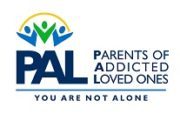Recently I was talking to a client about the subtle, but important, difference between “concern” and “worry.” With the COVID-19 pandemic there has certainly been ample cause for concern and no shortage of worry.
In my mind concern is a legitimate, expected, and healthy response to a possible problem that may impact you or someone you care about. Webster defines concern as “feelings and thoughts of unease, uncertainty or apprehension born out of personal interests or relationships; the engaging of our attention/focus on care.”
Worry, on the other hand, has a far more toxic feel to it that often includes: fretting, obsessing, agitation and distress. Worry leaves us disturbed, weighed down and often paralyzed; unable to free ourselves from our fearful and negative loop of thinking.
With that being said, the question arises… is it possible to be concerned and not worry? The answer is “YES, but it’s not easy.” The natural tendency for most of us is to slide, like an avalanche, from concern into full blown worry before we even realize what’s happening!
So, let me share a few ideas regarding keeping yourself in the healthy zone of concern avoiding the debris field of worry, anxiety and fear:
- Identify Your Concern: Ask yourself what it is that is really troubling you. Naming it helps us put the brakes on the rush of emotions and thoughts that leave us confused and out of control. It gives us clarity and focus and hopefully injects a level of honesty with ourselves that is much needed. The classic response of “I’m not concerned, I’m fine,” is a sure-fire way to end up at the base of the mountain in a heap of anxiety, irritability, sleeplessness and more
- Once you’ve identified your concern(s) then ask yourself: What action is required of me? In order to answer this question well, however, you are probably going to need some help gaining much needed perspective. So, I recommend you:
- Pray: prayer activates trust and trust is an essential ingredient in neutralizing worry and fear! (Phillipians 4:6-7, 1 Peter 5:6-7
- Seek Advicefrom those in your community who have life experience and that you respect (Proverbs 1:5
- Once you’ve answered the question, now it’s time to take action.The action required may be to do nothing more than to continue praying or it may be to create a boundary or express your concerns directly or offer aid or comfort – the possibilities are endless.
- Once you have taken wise action, it is time for the final and important step of letting go and re-focusing your attention. This step may be the most difficult for us, but it is an absolute must in order to live a worry-free life! It takes practice, work, commitment, and accountability. The Apostle Paul shared timeless wisdom on this topic when he wrote, “Whatever is true, noble, right, pure, lovely, admirable – if anything is praiseworthy – train your focus on these things.” (Philippians 4:8).
Remember, concern left unattended will avalanche into worry and fear. However, if you take the appropriate steps you can begin to experience a worry-free life in the middle of difficult times.
On the journey with you,
Ron
Ron Paterik is a practicing psychotherapist in Phoenix, Arizona with over 20 years’ experience. He is a Licensed Independent Substance Abuse Counselor and a Whole Life Leadership Mentor at Grand Canyon Counseling.


Comments are closed.